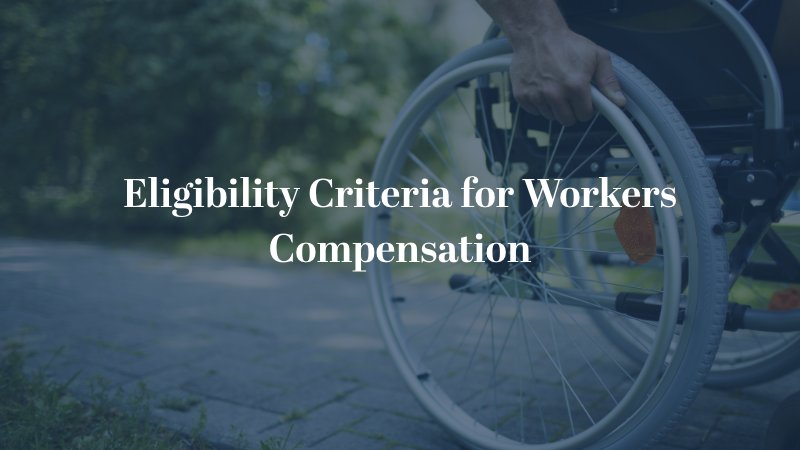
Workers’ compensation serves as a vital safety net, providing financial and medical support to employees who suffer work-related injuries or illnesses. Understanding the criteria for eligibility is crucial for employees, ensuring that those affected can access the benefits they need without delay.
Basic Eligibility Criteria for Workers’ Compensation
For employees, knowing the eligibility requirements can mean the difference between financial security and a denied claim. Here’s what you need to know.
Employment Status
To be eligible for workers’ compensation, you must be an employee. This definition can be broad and include full-time and part-time employees, certain volunteers, and some subcontracted workers. The key factor is that the individual performs services for an employer who has the right to control the type of work they’re doing and how it is performed.
Employer Coverage
Most employers are required to carry workers’ compensation insurance, but there are exceptions, such as the employing of only family members. The rules vary by state, but generally, in Washington DC, if a business has employees, workers’ compensation is mandatory.
Work-Related Injury or Illness
For an injury or illness to qualify for workers’ compensation, it must have occurred while performing work or as a result of work duties. The “arising out of” and “in the course of” employment requirement is the fundamental litmus test for eligibility.
Specific Eligibility Considerations
When determining eligibility for workers’ compensation, several more specific considerations play a crucial role as well:
Independent Contractors vs. Employees
There’s often confusion between independent contractors and employees. The former typically has more control over their work and isn’t eligible for workers’ compensation benefits. It’s essential to correctly classify workers to avoid missteps in the claims process.
Part-Time vs. Full-Time Employment
Eligibility isn’t contingent upon full-time status. Part-time employees can receive workers’ compensation benefits, provided they meet the other criteria. The determining factor is their employment relationship and the nexus to the work injury or illness.
Understanding these specific eligibility considerations is key to ensuring that those who suffer work-related injuries or illnesses can effectively navigate the workers’ compensation system and secure the support they rightfully deserve.
Navigating the Claim Process
The workers’ compensation claim process can be complex and lengthy. Following through with this process correctly can streamline your claim and increase the likelihood of a favorable outcome.
Gather all documents related to your injury, including medical records, witness statements, and any other evidence that supports your claim. Organize this information for easy retrieval during the claim process.
Reporting Timeline
In Washington D.C., employees who suffer a work-related injury or illness are required to report the incident to their employer as soon as possible, but no later than 30 days from the date of the injury or the date they became aware of a work-related illness.
You are required by law to promptly report your injury by filing DCWC Form 7, Employee’s Notice of Accidental Injury or Occupational Disease, with your employer and the Office of Workers’ Compensation (OWC) within thirty (30) days of the date of injury or the date you have knowledge that the injury is related to your job
Failing to adhere to this timeline can jeopardize an employee’s ability to receive workers’ compensation benefits.
Legal Assistance
Navigating the claims process can be overwhelming, especially when faced with a denied claim or an employer’s dispute. Seeking the advice of an experienced workers’ compensation lawyer can provide invaluable support and legal guidance.
If you’re an injured worker, don’t underestimate the value of timely reporting, thorough documentation, and legal assistance. Contact a workers’ comp attorney in Washington D.C. from Lightfoot Law today for assistance with your claim.